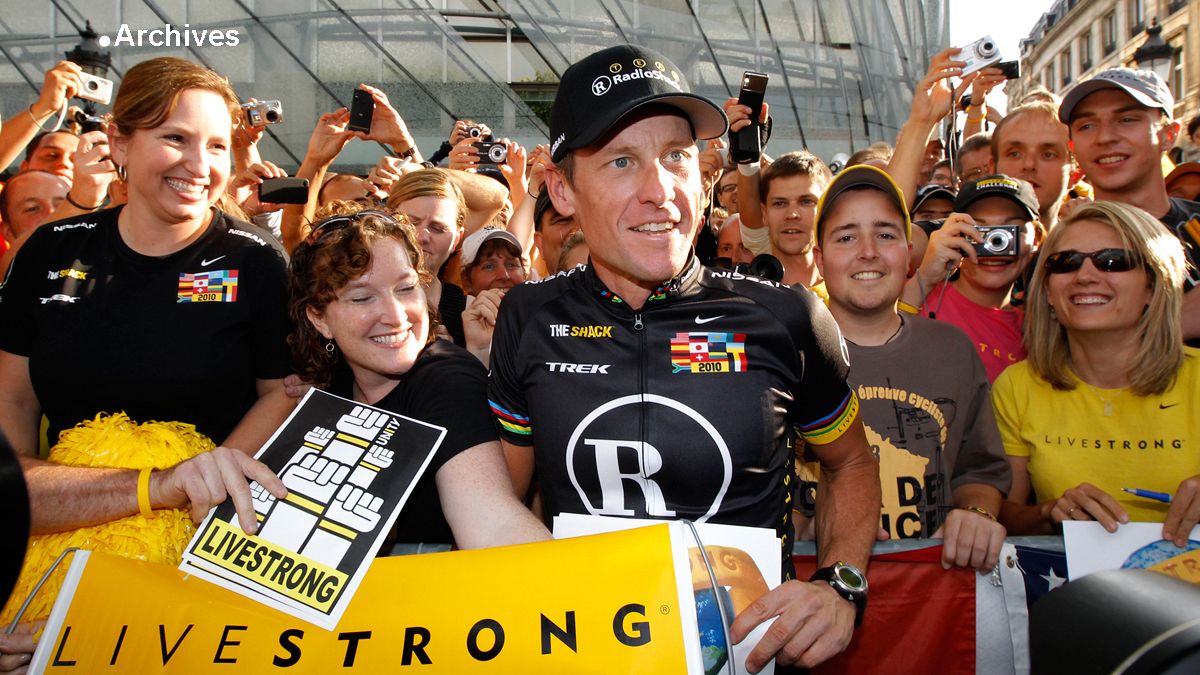Cycling legend Lance Armstrong, unilaterally stripped of his titles and banned for life from racing in August, has finally heard the many charges against him brought by the US Anti-Doping Agency (USADA).
Its investigation into the Texan and his time with the US Postal and Discovery Channel teams, implicates him in what it calls the most sophisticated doping programme that sport has ever seen.
Armstrong has been one of the most successful cyclists of all time, surviving testicular cancer at age 28 to go on to win the Tour de France a record seven times from 1999 to 2005.
He has always fought allegations that he used performance-enhancing drugs. He is now 41, and said he does not have the stomach to go against the USADA any more.
Armstrong’s net worth has been estimated at roughly $125 million. According to Forbes magazine, he earns more than $10 million a year in speaking fees and endorsement deals.
His corporate sponsors are either still supportive of him or are reserving comment on the USADA’s report.
It said: “Eyewitness, documentary, first-hand, scientific, direct and circumstantial evidence reveal conclusive and undeniable proof.”
The USADA said eleven of Armstrong’s former team-mates had given testimony, but that: “he rejected the same opportunity to come forward.”
He was accused of trafficking and encouraging other cyclists to use drugs.
Team doctors Michele Ferrari and Garcia del Moral also received lifetime bans for their part in the conspiracy, the report said.
But Armstrong is retired from racing. His last Tour de France was in 2010.
The agency said the evidence showed prolonged use of a range of EPO, blood transfusions, testosterone, corticosteroids, human growth hormone and masking agents.
An Armstrong lawyer denounced the allegations.
He said the agency was ignoring the more than 500 tests Armstrong had passed (he has never failed a doping test), and trying to justify the millions of dollars the USADA has spent going after him for years.
Euronews journalist Philippe Mathieu spoke to author Michel Rieu about the situation regarding Armstrong and where the fight against doping in sport goes from here.
“Michel Rieu, you are the author of a report entitled “The fight against doping” with reference to the public health issue presented at the French Academy of Medicine in May.
Were you surprised by the accusations contained in the US anti-doping agency report against Lance Armstrong?”
Michel Rieu:
“Not really, rumours have been rife for years in the world of sport. Since June we have been aware that USADA had this information on Armstrong, Bruyneel and Dr Ferrari etc, and now what has come out has caused a storm, but we were aware of what was coming.”
Euronews:
“Lance Armstrong has never tested positive. How can a much tested champion have avoided a positive test?”
Michel Rieu:
“It is simple, it’s about the Tour de France, and don’t forget that in 1999 and 2000 there was no test for EPO. That changed in 2001. Between 2001 and 2005 it was homotransfusions, blood transfusions made from one compatible subject to another were undetectable. And finally autotransfusion, which is currently undetectable.
We must look at UCI rules regarding doping control, before only the stage winner and race leader were automatically controlled, the other controls were taken at random. So that practically all controls were planned in advance and methods and techniques were set in place to avoid them, knowing a control was due.”
Euronews:
“The UCI have now received the report, how do you think they will react and where do they go from here?”
Michel Rieu:
“I am not here to speak on behalf of the UCI, but they are in a delicate position. Should they strip Armstrong of his titles? Do they make an example of him? Do they say no one won the Tour de France during the period 1999/2005? It is a complicated situation and we must understand the position of the UCI. The UCI has participated in creating the legend of Armstrong of celebrating this hero. They may well be forced to burn the idol, the legend that is loved. It is not simple. Now we know Armstrong was a doper it is difficult for everyone.”
Euronews:
“Do you think the battle against doping is a lost cause with dopers always one step ahead of the game?”
Michel Rieu:
“I don’t think its a losing battle and this case is symbolic and if carried to its logical conclusion will serve as a lesson to all dopers and to doping. That no one is safe from detection and that is very important for the future.”
